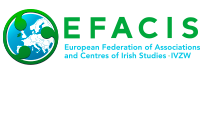Underground and Mainstream in Cultural Production
in Britain and Ireland since 1979
Journée d’études 14 mars 2019, Université de Toulon.
Call for papers
Underground music, underground cinema, underground hip hop culture, underground scene … the idea of “underground” originally connected to clandestine resistance networks under oppressive regimes, has frequently been linked to different activities of cultural production. Often claimed by practitioners themselves as a badge of honour, or a sign that they have managed to partially break free from market forces, it contrasts with the label “mainstream” usually attributed from the outside, or left unsaid. Mainstream cinema, mainstream contemporary art, and so on.
Our day conference aims at looking at these two concepts and some of the ways they have played out in Britain and Ireland in recent decades. We take 1979 as a starting point given its reputation as the beginning of a long period of domination of neoliberal ideology little associated with “underground values”. The explorations during this day conference might include some of the following questions, but other angles are welcome. Areas examined will include popular music, public cultural policy, visual arts, theatre, cinema, journalism and sport.
- What makes an activity “underground” and how can practitioners gain, defend or lose this label?
- Can you be “underground” and rely on money grants from public bodies?
- Can cultural production be neither underground nor mainstream?
- How has underground cultural production been integrated or fused with folk or with “high culture”?
- What is the connection between “underground” and other labels such as “community” (community arts, community theatre, community photography), “alternative” or “street” (street basketball, street skate, street art), etc.?
- How much audience and influence can underground have without becoming mainstream?
- What are the interactions between underground and mainstream?
- What are the specificities of underground in Britain and Ireland as opposed to elsewhere?
- Is underground still possible in the age of the internet?
Papers may be proposed in English or in French.
Proposals should be of 300 words, with a 200 word biography attached, and should be sent to john.mullen@univ-rouen.fr and to armao@univ-tln.fr before the 10th of November 2018
Papers given at the conference will later, we hope, give rise to written articles, published after peer review in the British Journal of French Studies ( https://journals.openedition.org/rfcb/ ).
Organizers:
Frédéric Armao
John Mullen
Scientific committee:
Frédéric Armao
Claude Chastagner
Elsa Grassy
John Mullen
Sylvie Mikowski
 Efacis
Efacis 


